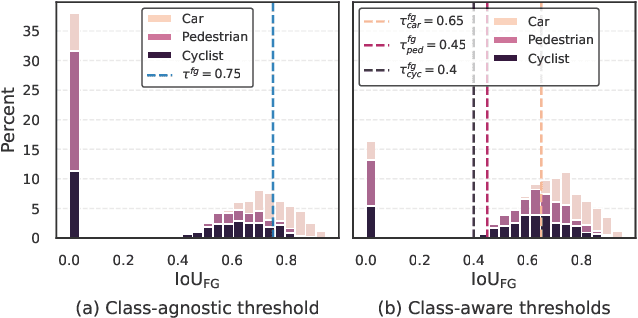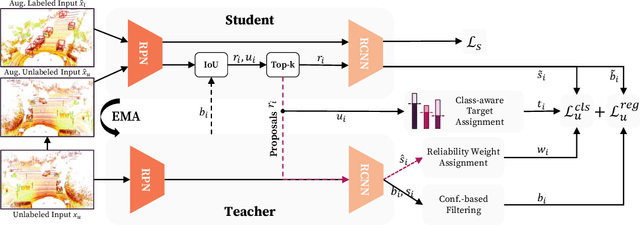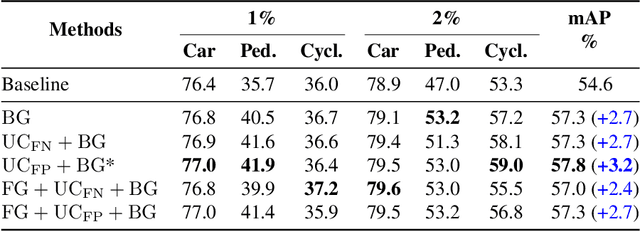Danish Shahzad
Reliable Student: Addressing Noise in Semi-Supervised 3D Object Detection
Apr 27, 2024



Abstract:Semi-supervised 3D object detection can benefit from the promising pseudo-labeling technique when labeled data is limited. However, recent approaches have overlooked the impact of noisy pseudo-labels during training, despite efforts to enhance pseudo-label quality through confidence-based filtering. In this paper, we examine the impact of noisy pseudo-labels on IoU-based target assignment and propose the Reliable Student framework, which incorporates two complementary approaches to mitigate errors. First, it involves a class-aware target assignment strategy that reduces false negative assignments in difficult classes. Second, it includes a reliability weighting strategy that suppresses false positive assignment errors while also addressing remaining false negatives from the first step. The reliability weights are determined by querying the teacher network for confidence scores of the student-generated proposals. Our work surpasses the previous state-of-the-art on KITTI 3D object detection benchmark on point clouds in the semi-supervised setting. On 1% labeled data, our approach achieves a 6.2% AP improvement for the pedestrian class, despite having only 37 labeled samples available. The improvements become significant for the 2% setting, achieving 6.0% AP and 5.7% AP improvements for the pedestrian and cyclist classes, respectively.
 Add to Chrome
Add to Chrome Add to Firefox
Add to Firefox Add to Edge
Add to Edge